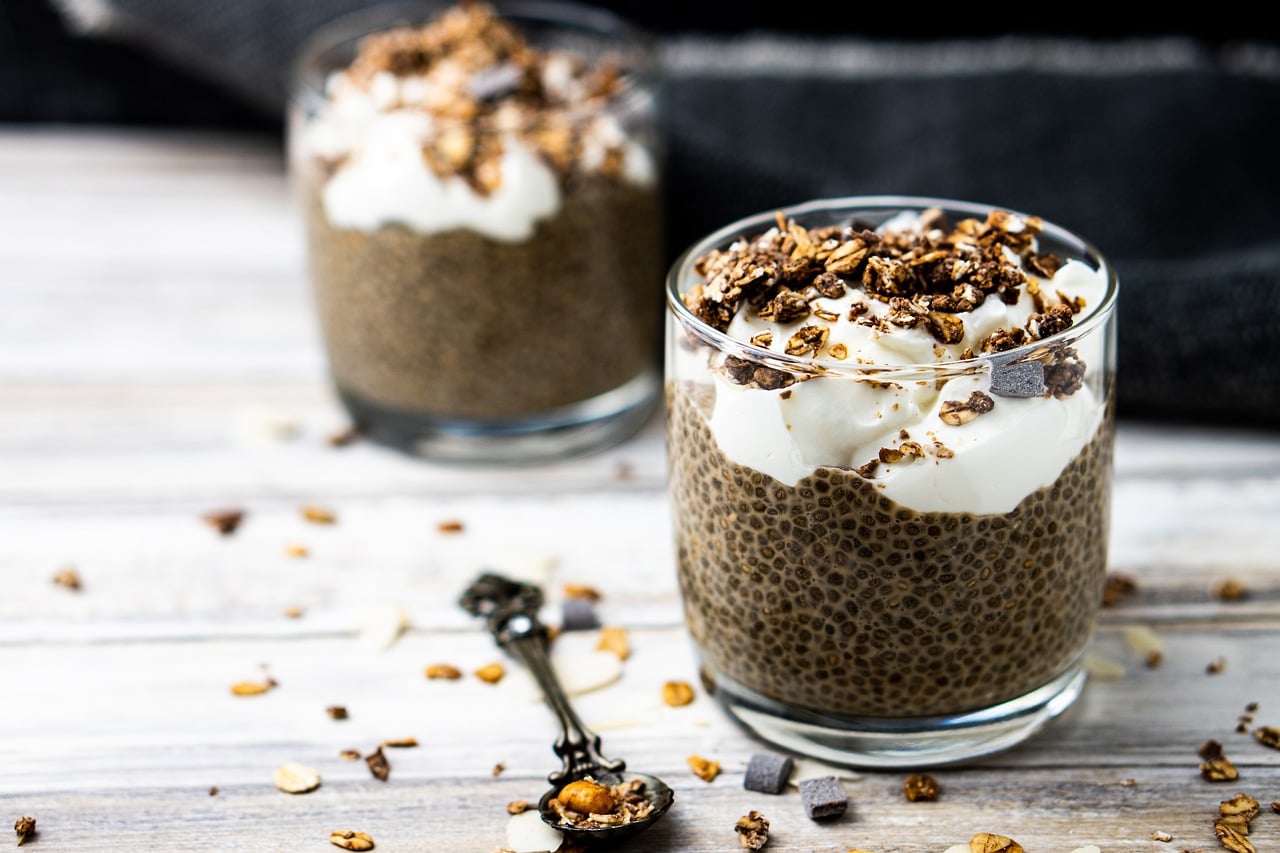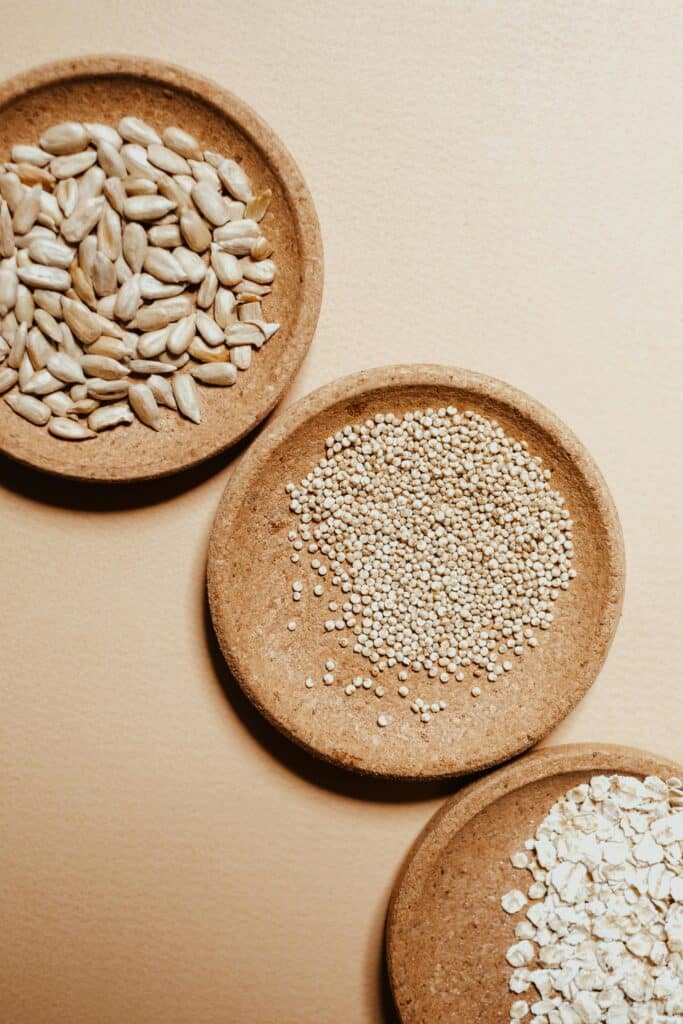Physical Address
304 North Cardinal St.
Dorchester Center, MA 02124
Physical Address
304 North Cardinal St.
Dorchester Center, MA 02124

When you think of omega-3 fatty acids, what comes to mind? Most likely, fish. However, the best plant-based sources of omega-3 fatty acids can provide all the benefits without the need for seafood. From supporting heart health to boosting brain function and enhancing skin wellness, omega-3s are truly essential for your overall health.
Whether you’re vegan, vegetarian, or simply looking for new ways to enrich your diet, plant-based omega-3s can be a game-changer. In this article, we’ll guide you through the most powerful plant sources of these healthy fats and show you how easy it is to incorporate them into your daily routine.

Omega-3 fatty acids are a group of polyunsaturated fats that are essential for your body. While there are several types, the three most important ones are:
The body cannot produce omega-3s on its own, which is why it’s so important to obtain them from your diet. Omega-3s play a role in everything from supporting your cardiovascular system to improving mental clarity. Furthermore, they’re key in reducing inflammation and promoting healthy skin.
Although the body can convert ALA (found in plants) into EPA and DHA, the conversion process is not very efficient. That’s why it’s important to consume a variety of plant-based omega-3-rich foods to ensure you’re getting enough.
Now, let’s explore the best plant-based sources of omega-3 fatty acids that will help you optimize your health.
Chia seeds might be small, but they are one of the most powerful sources of omega-3s. Just one ounce (about 28 grams) of chia seeds contains around 5 grams of ALA. These little seeds are also packed with fiber, protein, and antioxidants, which support digestive health and help combat inflammation.
How to Use Chia Seeds:
The versatility of chia seeds makes them an easy addition to your diet. Plus, their high fiber content promotes fullness, making them great for those looking to manage their weight.
Flaxseeds are often hailed as one of the best sources of ALA, offering approximately 2.4 grams per tablespoon of ground flaxseed. Along with omega-3s, flaxseeds provide lignans—plant compounds with antioxidant properties that may help lower the risk of heart disease and certain cancers.
How to Use Flaxseeds:
To get the full benefit, always opt for ground flaxseeds, as whole flaxseeds may pass through your digestive system undigested. Ground flax is easily absorbed by the body, maximizing its nutrient potential.
Walnuts are another excellent plant-based source of omega-3s, providing around 2.5 grams of ALA per ounce (about 14 halves). But that’s not all—walnuts also offer a variety of vitamins, minerals, and antioxidants that promote brain health. Studies suggest that walnuts can support cognitive function, improve memory, and even reduce the risk of age-related cognitive decline.
How to Use Walnuts:
Not only are walnuts delicious, but they’re also one of the easiest ways to give your brain and heart the omega-3s they crave.
Hemp seeds are a nutritious and complete source of plant-based protein, meaning they contain all nine essential amino acids. These little seeds also offer around 1 gram of ALA per tablespoon, along with a wide range of vitamins and minerals, including magnesium, iron, and zinc.
How to Use Hemp Seeds:
Hemp seeds are easy to incorporate into nearly any dish, and they’re especially beneficial for those seeking plant-based protein sources.
Algal oil stands out for being one of the few plant-based sources of both DHA and EPA. Derived from algae, this oil is an excellent alternative for those who do not consume fish but still want the benefits of DHA and EPA. Algal oil is available in supplement form, making it an easy addition to your daily routine.
How to Use Algal Oil:
For vegans and vegetarians who may struggle to get enough DHA and EPA from their diets, algal oil is a must-have.
Seaweed varieties like nori, kelp, and wakame provide small amounts of DHA and EPA, making them a valuable addition to any plant-based diet. In addition to omega-3s, seaweed is rich in iodine, antioxidants, and fiber, which contribute to overall health and well-being.
How to Use Seaweed:
Seaweed is a sustainable source of omega-3s and offers unique nutritional benefits that you won’t find in other plant foods.
Edamame, or young soybeans, are another great source of omega-3s. One cup of cooked edamame contains about 0.5 grams of ALA, along with plant-based protein and fiber. Edamame is not only nutritious but also a fun and satisfying snack that can help keep you full.
How to Use Edamame:
With their high protein and omega-3 content, edamame is perfect for a quick snack or a nutritious addition to meals.
In addition to supporting your heart and brain, omega-3s play a vital role in maintaining healthy skin. Omega-3 fatty acids help to keep skin hydrated, reduce inflammation, and promote elasticity, which can lead to a smoother, younger-looking complexion. Consuming foods rich in omega-3s may also protect your skin from UV damage and support the healing of skin conditions such as acne, eczema, and psoriasis.
By incorporating plant-based omega-3s into your diet, you can nourish your skin from the inside out, giving it the nutrients it needs to look its best.
To get the most from your plant-based omega-3s, consider these helpful tips:
Incorporating plant-based sources of omega-3 fatty acids into your diet can have a profound impact on your heart, brain, and skin health. From chia seeds and flaxseeds to walnuts and algal oil, there are numerous ways to enjoy the benefits of omega-3s without turning to fish. By adding these nutrient-packed foods to your meals, you’ll be giving your body the healthy fats it needs to thrive.
So, why not take the leap and embrace the power of plant-based omega-3s today? Your heart, brain, and skin will thank you!